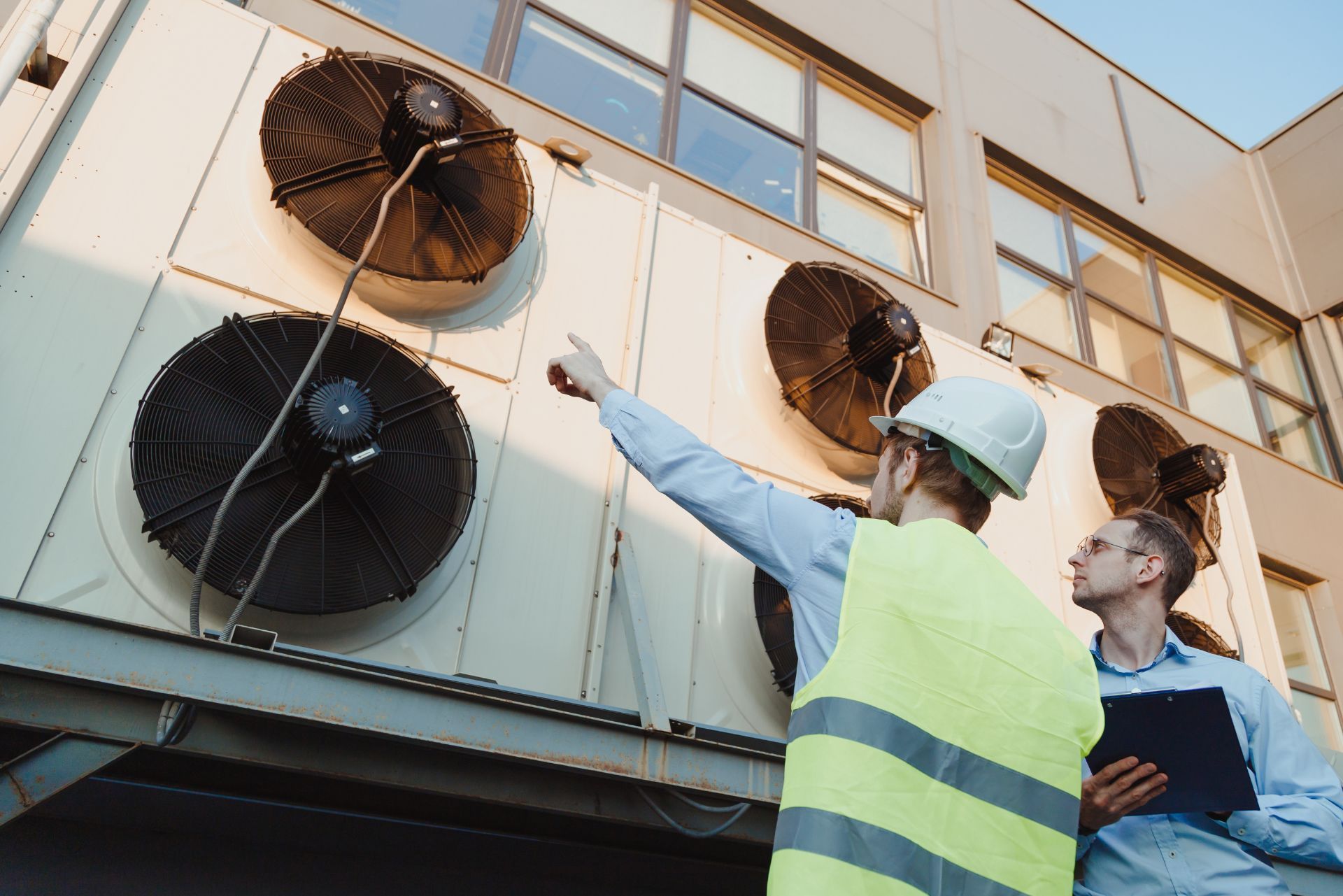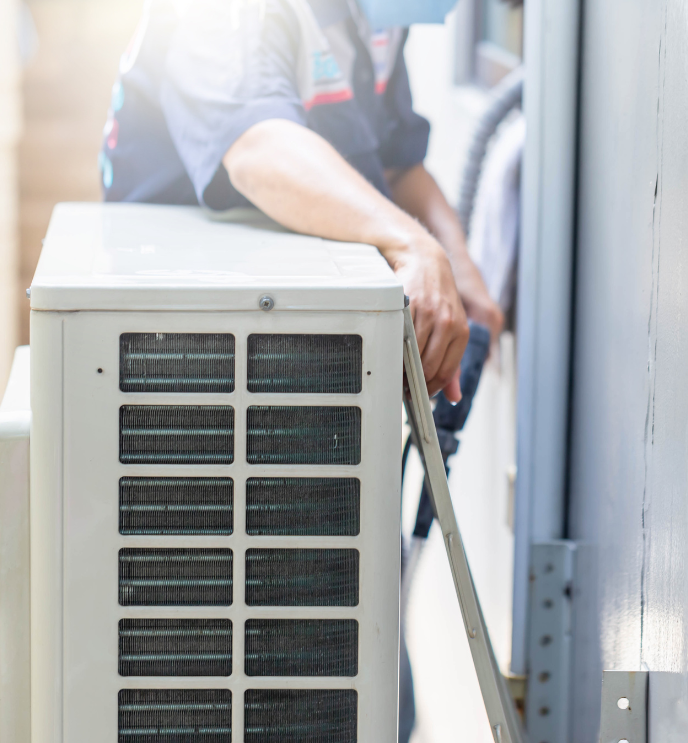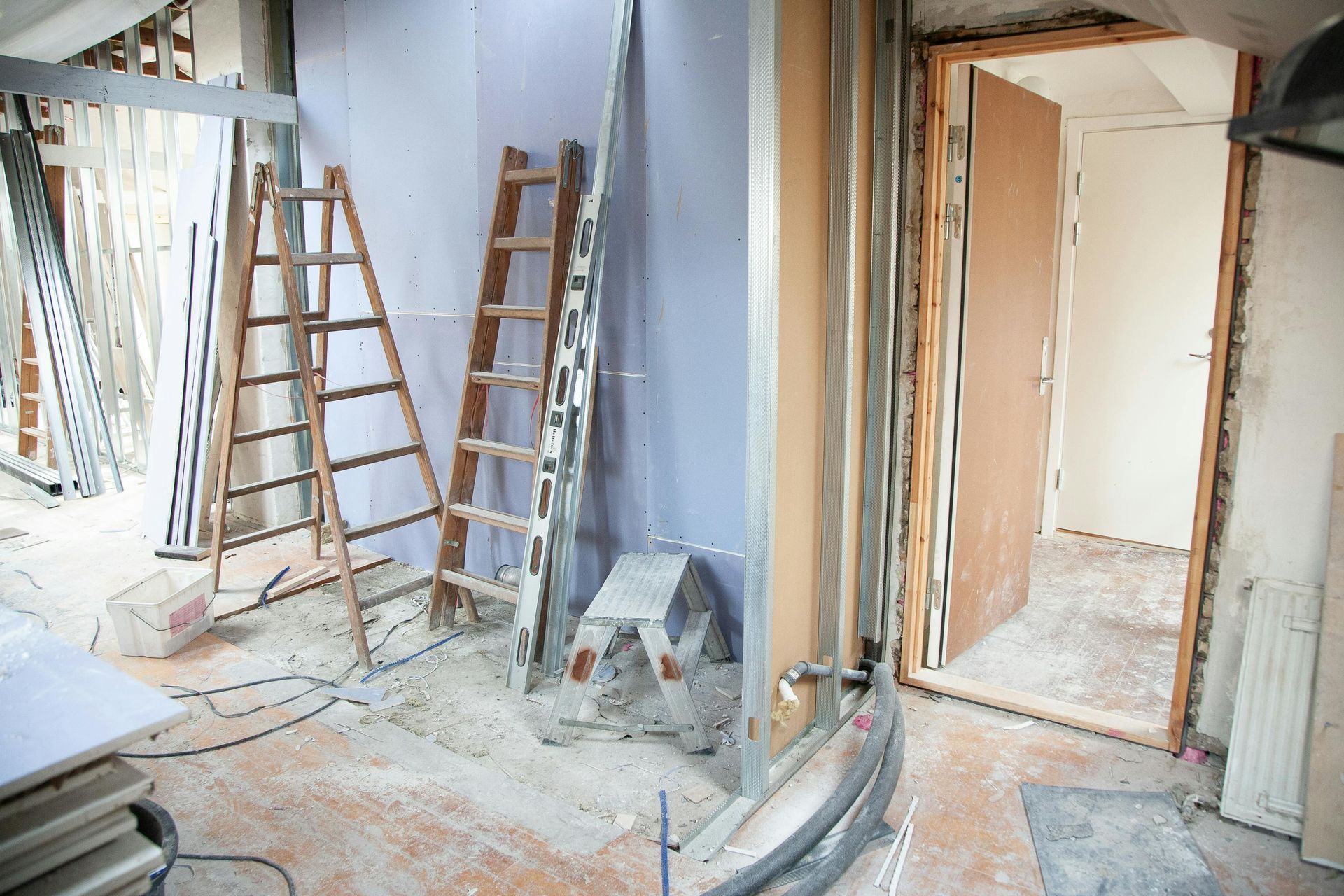Government/School HVAC Contractor Insurance
See How We're Different
or call us: 888-988-2347
Types of Contractors We Serve
Jonathan Behr
Owner of Contractor Insurance Pros by Behr Insurance Services
Index
Contact Us
Phone
Location
Simi Valley, CA 93065
The Woodlands, TX 77382
Katy, TX 77494
In the realm of heating, ventilation, and air conditioning (HVAC) services, contractors play a pivotal role in ensuring the comfort and safety of various environments, particularly in government and school settings. However, the nature of this work comes with its own set of challenges and risks. To mitigate these risks, HVAC contractors must consider investing in comprehensive insurance coverage tailored specifically for their industry. This article delves into the significance of HVAC contractor insurance, particularly in government and educational institutions, highlighting the types of coverage available, the benefits of having insurance, and the unique considerations for contractors working in these sectors.
Understanding HVAC Contractor Insurance
HVAC contractor insurance is a specialized form of coverage designed to protect contractors from various liabilities associated with their work. This insurance is crucial for contractors who work in sensitive environments like schools and government buildings, where the stakes are high, and the potential for liability is significant. The complexity of HVAC systems, combined with the potential for accidents or malfunctions, makes it imperative for contractors to have robust insurance coverage to safeguard their operations and financial stability.
Moreover, the HVAC industry is subject to a range of regulations and standards that vary by location. This adds another layer of risk, as non-compliance can lead to hefty fines and legal challenges. Insurance not only provides financial protection but also peace of mind, allowing contractors to focus on delivering quality service without the constant worry of potential liabilities. Understanding the nuances of these insurance policies can significantly impact a contractor's ability to operate effectively and competitively in the market.
Types of Insurance Coverage
Several types of insurance coverage are essential for HVAC contractors. Each type serves a specific purpose and addresses different risks associated with the industry. Selecting the right combination of policies is crucial for ensuring comprehensive protection.
- General Liability Insurance: This coverage protects contractors against claims of bodily injury, property damage, and personal injury that may occur during the course of their work. For example, if a worker accidentally damages a school’s property while installing an HVAC system, general liability insurance would cover the costs associated with repairs. This type of insurance also helps in building trust with clients, as it demonstrates a commitment to responsible business practices.
- Workers' Compensation Insurance: This is critical for any contractor employing staff. It provides coverage for medical expenses and lost wages for employees who suffer injuries on the job. In a school setting, where contractors often work in close proximity to students and staff, having this insurance is vital to ensure that all parties are protected. Additionally, it fosters a safer work environment, as it encourages contractors to prioritize safety measures to minimize workplace accidents.
- Commercial Auto Insurance: Many HVAC contractors operate vehicles to transport equipment and personnel to job sites. Commercial auto insurance covers damages resulting from accidents involving these vehicles, safeguarding the contractor from financial loss. This coverage is particularly important given the potential for accidents while navigating busy school zones or government facilities, where the presence of pedestrians and other vehicles increases the risk of incidents.
Additional Coverage Options
Beyond the basic types of insurance, HVAC contractors may also consider additional coverage options to further protect their business. These can include:
- Professional Liability Insurance: This coverage is essential for contractors who provide design or consulting services. It protects against claims of negligence or errors in judgment that could lead to financial losses for clients. In an industry where precision and expertise are paramount, having this insurance can differentiate a contractor from competitors who may not be as well-protected.
- Equipment and Tools Insurance: HVAC contractors rely heavily on specialized tools and equipment. This insurance covers the loss or damage of these essential items, ensuring that contractors can quickly replace them without incurring significant out-of-pocket expenses. Given the high cost of HVAC tools, this coverage can be a game-changer for small businesses that may not have the cash flow to replace equipment immediately.
- Cyber Liability Insurance: As technology becomes increasingly integrated into HVAC systems, contractors may handle sensitive client data. Cyber liability insurance protects against data breaches and cyberattacks, which can be particularly damaging in government and school environments. With the rise of smart HVAC systems that connect to the internet, the risk of cyber threats is ever-present, making this coverage more relevant than ever.
In addition to these coverages, HVAC contractors should also consider the importance of risk management strategies. Implementing safety training programs and regular equipment maintenance can help mitigate risks, potentially leading to lower insurance premiums over time. Furthermore, staying informed about industry trends and changes in regulations can empower contractors to make proactive decisions regarding their insurance needs, ensuring they remain compliant and adequately protected in an evolving landscape.

The Importance of Insurance for Government and School HVAC Contractors
Working in government and educational institutions presents unique challenges that underscore the importance of having adequate insurance coverage. These environments often have strict regulations and higher expectations for safety and compliance, making it essential for HVAC contractors to be well-protected.
Compliance with Regulations
Government and school facilities are subject to numerous regulations and standards that dictate how HVAC systems should be installed and maintained. Contractors must adhere to these regulations to avoid penalties and ensure the safety of the occupants. Insurance coverage can provide peace of mind, knowing that any potential legal issues arising from non-compliance can be addressed. Furthermore, understanding the intricacies of these regulations can be a daunting task for contractors, as they often vary by state and local jurisdictions. Having a knowledgeable insurance provider can help contractors navigate these complexities, ensuring that they are not only compliant but also up-to-date with any changes in legislation that may affect their work.
Protection Against Liability Claims
In the event of an accident or injury, liability claims can be particularly damaging to contractors working in schools and government buildings. These claims can arise from various situations, such as a slip and fall incident or equipment malfunction. Having comprehensive insurance coverage allows contractors to defend themselves against such claims, reducing the financial burden and protecting their reputation. Additionally, the potential for high-profile incidents in a school or government setting can amplify the consequences of a liability claim. The media attention surrounding such cases can lead to reputational damage that extends beyond the immediate financial implications, making it even more critical for contractors to have robust liability insurance to safeguard their business interests.
Safeguarding Public Trust
Contractors working in public institutions have a responsibility to maintain public trust. Insurance not only protects the contractor but also assures clients that they are working with a professional who takes their obligations seriously. This trust is crucial for securing future contracts and maintaining a positive reputation in the industry. Moreover, the presence of insurance can serve as a differentiator in a competitive bidding process, as clients may prefer to work with contractors who demonstrate a commitment to risk management and accountability. By showcasing their insurance coverage, contractors can enhance their credibility and foster stronger relationships with government and educational clients, ultimately leading to more opportunities for collaboration and growth in their business.
Choosing the Right Insurance Provider
Selecting the right insurance provider is a critical step for HVAC contractors. The choice can significantly impact the level of protection and support available in times of need.
Evaluating Insurance Options
When evaluating insurance options, contractors should consider several factors:
- Coverage Options: Ensure that the provider offers comprehensive coverage tailored to the specific needs of HVAC contractors working in government and school settings.
- Reputation: Research the insurance company’s reputation within the industry. Look for reviews and testimonials from other contractors to gauge their reliability and customer service.
- Cost: While cost is an important factor, it should not be the sole consideration. Weigh the cost of premiums against the level of coverage and support provided.
Consulting with Insurance Brokers
Working with an insurance broker who specializes in contractor insurance can be beneficial. Brokers can help navigate the complexities of insurance policies, ensuring that contractors find the best coverage for their specific needs. They can also provide insights into industry trends and potential risks, helping contractors make informed decisions.
Moreover, brokers often have access to a wide range of insurance products and can compare policies from multiple providers, saving contractors valuable time and effort. This access allows them to identify unique endorsements or riders that may be particularly advantageous for HVAC contractors, such as coverage for equipment breakdowns or liability protection during installation projects. Additionally, brokers can assist in understanding the fine print of policies, ensuring that contractors are aware of any exclusions or limitations that could affect their coverage during a claim.
Understanding Policy Details
It’s essential for HVAC contractors to take the time to thoroughly read and understand the details of their insurance policies. This includes familiarizing themselves with the terms, conditions, and any specific requirements that must be met to maintain coverage. For example, some policies may require regular safety inspections or certifications to remain valid. Understanding these stipulations can help contractors avoid potential pitfalls and ensure that they are adequately protected. Furthermore, knowing the claims process and what documentation is necessary can streamline the experience should a claim need to be filed, ultimately leading to quicker resolutions and less downtime for the business.
Benefits of Comprehensive Insurance Coverage
Investing in comprehensive insurance coverage offers numerous benefits for HVAC contractors working in government and school environments. These benefits extend beyond mere financial protection and contribute to the overall success and sustainability of the business.
Financial Security
One of the most significant advantages of having insurance is financial security. In the event of an accident or liability claim, insurance can cover legal fees, settlements, and damages, protecting the contractor’s financial resources. This security allows contractors to focus on their work without the constant worry of potential financial ruin. Furthermore, having a solid insurance policy can also enhance a contractor's ability to secure loans or financing, as lenders often view insurance as a sign of a stable and responsible business. This added layer of financial credibility can be crucial for contractors looking to expand their operations or invest in new technology.
Enhanced Professionalism
Having insurance demonstrates professionalism and commitment to best practices. Clients are more likely to choose contractors who are insured, as it reflects a level of responsibility and dedication to quality work. This professionalism can lead to increased business opportunities and a stronger reputation in the industry. Additionally, being insured can provide contractors with a competitive edge in bidding for projects, especially in government contracts where insurance requirements are often stringent. Clients feel more secure knowing that their contractor is prepared for unforeseen circumstances, which can lead to long-term partnerships and repeat business.
Risk Management
Insurance is a crucial component of effective risk management. By identifying potential risks and obtaining appropriate coverage, contractors can minimize their exposure to liability and other financial threats. This proactive approach not only protects the contractor but also enhances the safety and well-being of the environments in which they work. Moreover, comprehensive insurance can also include coverage for equipment breakdowns, which is particularly important for HVAC contractors who rely on specialized tools and machinery. By ensuring that their equipment is covered, contractors can avoid costly downtimes that could disrupt their projects and impact their bottom line. This level of preparedness not only safeguards the contractor's interests but also ensures that clients receive timely and efficient service, further solidifying the contractor's reputation in the market.

Common Misconceptions About HVAC Contractor Insurance
Despite the clear benefits of insurance, several misconceptions persist that may deter HVAC contractors from obtaining the coverage they need.
Insurance is Too Expensive
Many contractors believe that insurance premiums are prohibitively expensive. While costs can vary, it is essential to view insurance as an investment rather than an expense. The potential financial losses from accidents or liability claims far outweigh the cost of premiums. Additionally, many providers offer flexible payment plans and discounts for bundling multiple policies. By taking the time to shop around and compare quotes from different insurers, contractors can often find a policy that fits their budget while still providing essential coverage. Furthermore, investing in safety training and risk management can lead to lower premiums over time, as insurers recognize the reduced likelihood of claims from well-prepared contractors.
Only Large Contractors Need Insurance
Another common misconception is that only large contractors require insurance. In reality, small and medium-sized contractors face just as many risks, if not more. Regardless of the size of the business, having insurance is crucial for protecting assets and ensuring long-term viability. Small contractors often operate with tighter margins and fewer resources, making them particularly vulnerable to the financial repercussions of a lawsuit or significant accident. Additionally, many clients now require proof of insurance before awarding contracts, meaning that without coverage, smaller contractors may miss out on lucrative opportunities.
Insurance Covers Everything
While insurance provides valuable protection, it does not cover every possible scenario. Contractors must understand the specifics of their policies, including any exclusions or limitations. This knowledge allows them to make informed decisions about additional coverage options that may be necessary for their unique circumstances. For instance, while general liability insurance may cover bodily injury or property damage, it might not extend to professional errors or omissions, which could be critical for contractors who offer design or consulting services. Therefore, exploring options like professional liability insurance or equipment coverage can help fill gaps in protection and provide comprehensive security against unforeseen events.
Moreover, it’s important for HVAC contractors to regularly review and update their insurance policies as their business evolves. Changes in the scope of work, the addition of new services, or the acquisition of more expensive equipment can all impact the level of coverage needed. Engaging with an insurance advisor who understands the HVAC industry can provide valuable insights and help tailor a policy that aligns with current operations and future growth. This proactive approach not only safeguards the business but also enhances its credibility in the eyes of clients and partners..
The Process of Obtaining HVAC Contractor Insurance
Obtaining HVAC contractor insurance involves several key steps. Understanding this process can help contractors navigate the complexities of securing appropriate coverage efficiently.
Assessing Insurance Needs
The first step in obtaining insurance is assessing the specific needs of the business. Contractors should evaluate the types of work they perform, the size of their team, and the environments in which they operate. This assessment will help determine the types and levels of coverage required.
Gathering Necessary Documentation
Before applying for insurance, contractors should gather necessary documentation, including business licenses, employee information, and details about previous projects. Having this information readily available can streamline the application process and ensure accurate quotes.
Requesting Quotes from Multiple Providers
Once the assessment is complete, contractors should request quotes from multiple insurance providers. Comparing quotes allows contractors to evaluate coverage options, costs, and the reputation of different insurers. This step is crucial for ensuring that contractors find the best coverage for their specific needs.
Conclusion
In the HVAC industry, particularly when working in government and school environments, having comprehensive insurance coverage is not just a necessity; it is a fundamental aspect of responsible business practice. By understanding the types of coverage available, the importance of insurance, and the process of obtaining it, HVAC contractors can protect themselves, their employees, and the communities they serve.
Investing in the right insurance not only safeguards against potential liabilities but also enhances professionalism and fosters trust with clients. As the HVAC landscape continues to evolve, staying informed about insurance options and requirements will empower contractors to navigate challenges effectively and thrive in their industry.
Areas we serve









